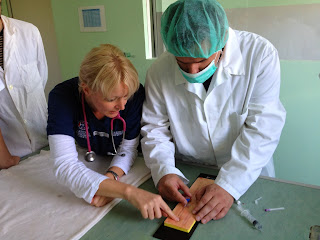A survey of the
animals on the Isle of Arran has been conducted by scientists who are
monitoring the population in a bid to help save the species.
They have found
the squirrels to be in excellent health and showing few signs of disease.
Welcome
findings
Researchers were
particularly relieved to find no evidence of the deadly squirrelpox virus.
Keeping
squirrelpox at bay is vital to red squirrel survival and being on an island
gives Arran’s population the best chance of avoiding this disease.
The findings are
good news for the future of this endangered species.
Competition
threat
Red squirrels
around the UK are under threat from deadly diseases and competition for food
and habitat from grey squirrels, which were introduced to Britain from North
America in the 19th century.
Arran is one of 19
red squirrel strongholds in Scotland - there are no grey squirrels on the
island.
Red squirrels are
found in both deciduous and coniferous woods all over the island.
Animal
health
The survey was led
by vets and scientists at the University’s Royal (Dick) School of Veterinary
Studies and funded by the People’s Trust for Endangered Species and Forestry
Commission Scotland.
The team humanely
trapped and examined 21 live squirrels with the help of local foresters and
rangers.
Vets also examined
the remains of 16 squirrels that had been killed on the roads.
Detailed health
checks included tests for common squirrel diseases, such as parasites and
viruses, and also investigated the genetics of the animals.
“Some
populations of red squirrels have been found to have high levels of diseases,
and lack of genetic diversity could also affect their health, so we’re
delighted to find that Arran’s red squirrels are fit and healthy.” Professor Anna Meredith
Squirrel photo by Alistair Rae


















.JPG)

